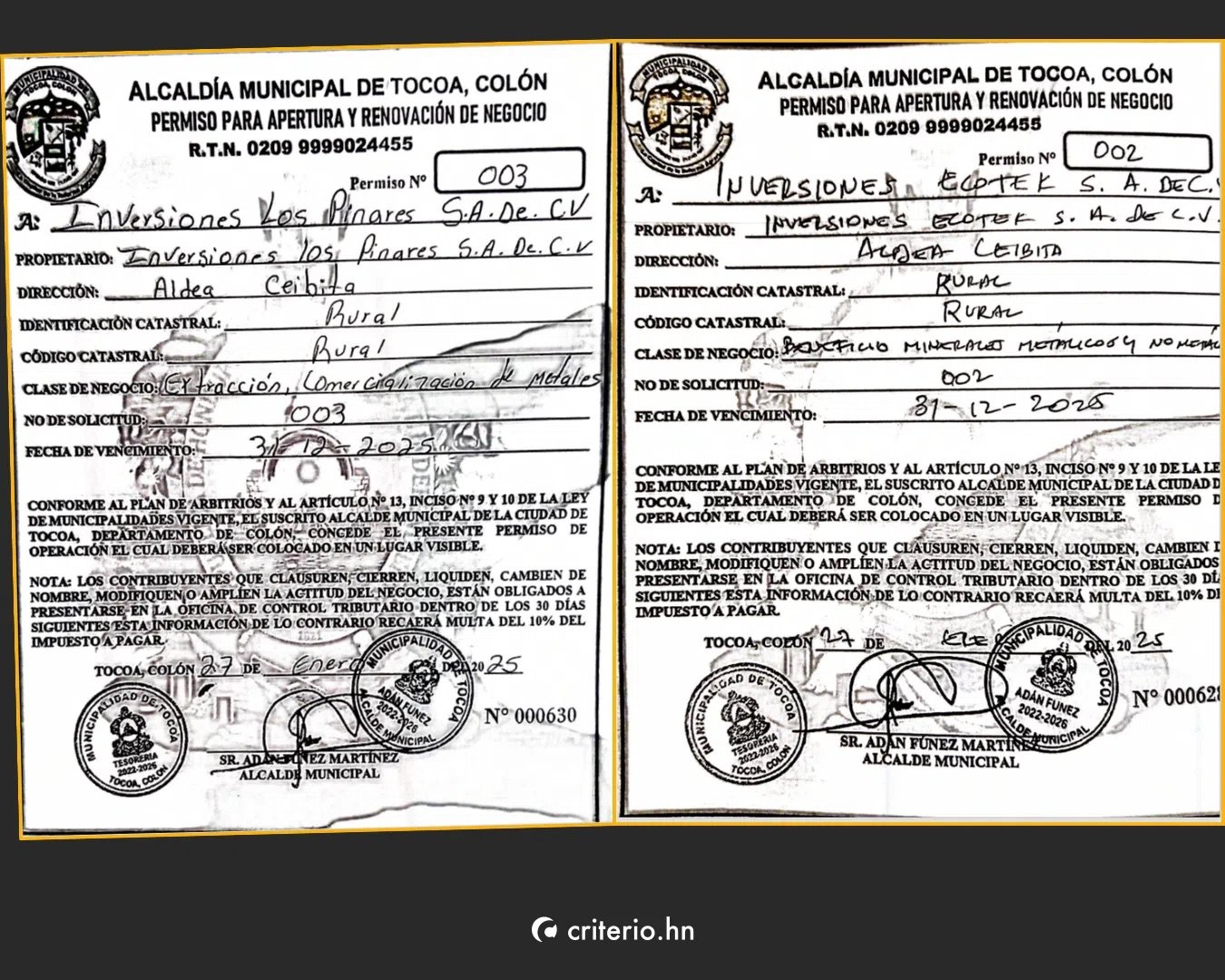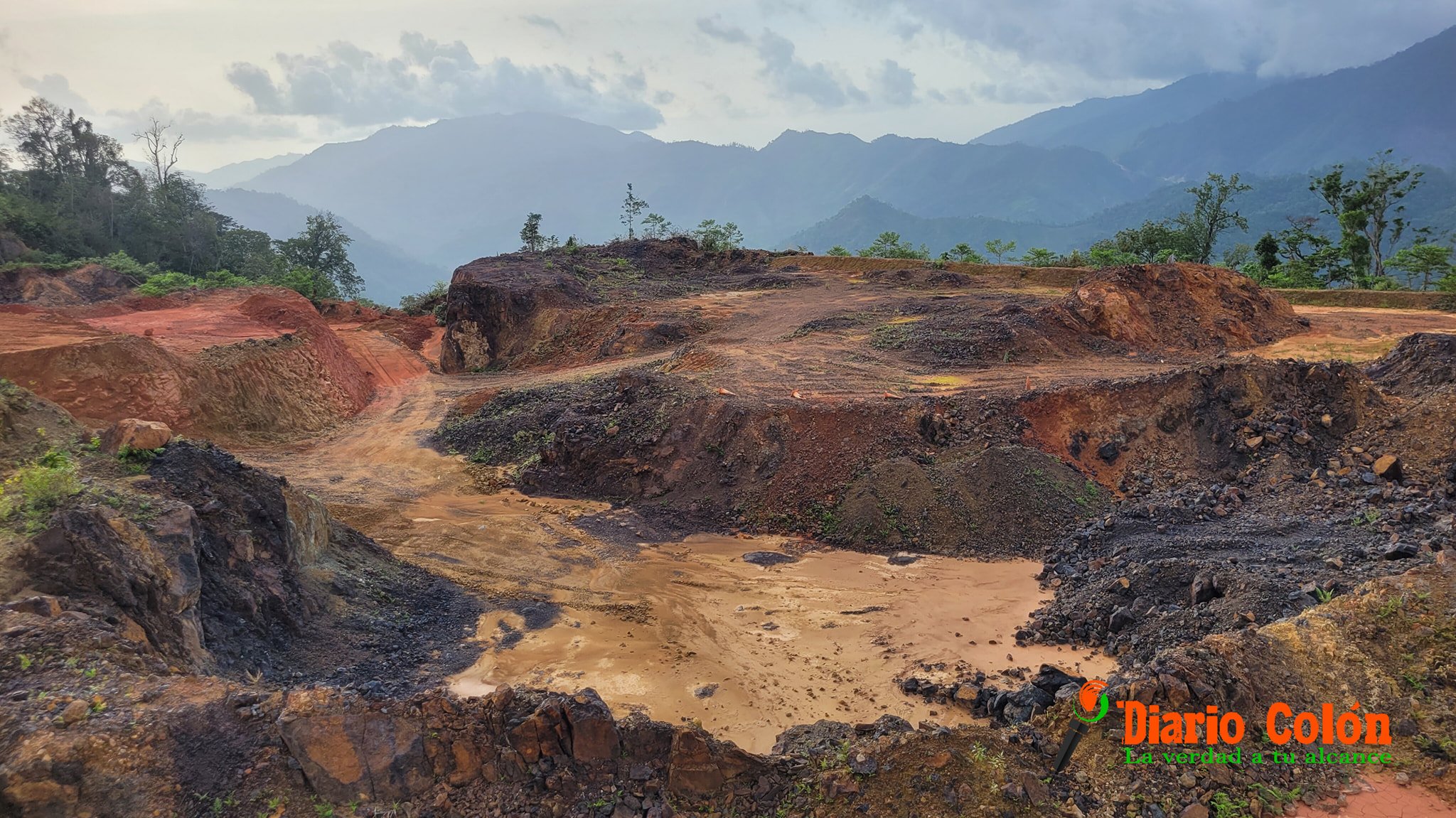Aguán News Alert | June 2025
Popular Organizations Persist in Their Struggle for Justice
Tocoa, Colón, Honduras. – During the month of June, Bajo Aguán communities and organizations continued to demand justice for Juan López, nine months after his assassination. They denounced the Public Ministry for failing to go after the intellectual authors of his murder.
On June 3, the Public Ministry entered formal proceedings against one government official and two legal representatives of Inversiones Los Pinares-Ecotek for the falsification of public documents and their subsequent use to obtain illegal environmental licenses. New light has been shed on the direct involvement of Adán Fúnez, the mayor of Libre, Tocoa, in the municipality’s fraudulent and illegal collaboration with Los Pinares-Ecotek. In January, Fúnez extended the operating permits for both companies, despite lacking the necessary concessions and licenses from the Honduran Institute of Geology and Mines (Inhgeomin in Spanish) and the Ministry of Natural Resources and Environment (SERNA in Spanish).
On June 18th, the Agrarian Platform, the Municipal Committee in Defense of Common and Public Goods of Tocoa (CMDBCPT in Spanish), and other groups gathered in front of the Supreme Court of Justice to deliver an amparo appeal in their case against Los Pinares-Ecotek. They asserted their rights to water, a healthy environment, and due process.
Latest News
The case of document falsification for Los Pinares-Ecotek: On June 3, the Public Ministry entered into formal proceedings against the municipal secretary of Tocoa, Norma Agripina García, and two legal representatives for Inversiones Los Pinares and Ecotek, Kenia Cortés and José Vindel, for the falsification of public documents and their subsequent use. They are accused of altering the minutes of an open town hall meeting from 2016 in order to obtain environmental licenses from the Ministry of Natural Resources and Environment (SERNA in Spanish) on at least four different occasions for mining operations in the Carlos Escaleras National Park.
Bodies exhumed in the village of Panamá, Trujillo, Colón: The Bajo Aguán Violent Deaths Unit (UMVIBA in Spanish) exhumed the bodies of Inés Suyapa Guillén and José Luis Hernández in an effort to determine those responsible for their murders.
Mayor of Libre illegally extended operation permits for Inversiones Los Pinares-Ecotek: On June 6, it was revealed that the Mayor of Libre, Tocoa, Adán Fúnez, who has links to the criminal group “Los Cachiros”, illegally extended the operating permits of Inversiones Los Pinares-Ecotek on January 27, 2025. The permits were granted without necessary government approval. The Honduran Institute of Geology and Mines (Inhgeomin in Spanish) denied the ASP and ASP2 mining concessions to Inversiones Los Pinares, and Serna has not issued an environmental license to Inversiones Ecotek. Concerningly, the illegal operating permit for Ecotek allows for the processing of metallic and non-metallic minerals, opening up the possibility of processing minerals besides iron oxide. In February 2023, the Community Monitoring Report of Water Sources of the Observatory of Extractive Industries of Guatemala/OIE found cyanide in the Guapinol and San Pedro rivers.


Presentation of a Human Rights Report: On June 13, the Data Bank of Human Rights and Political Violence of Honduras presented the report Honduras in Memory #2: Annual Balance of Human Rights. The report was presented in memory of Juan López and his tireless defense for the environment. To view a recording of the presentation, click here.
Continued advocacy for justice in the assassination of Juan López: On June 14, marking nine months since the assassination of land defender Juan López, local groups repeated their demands for justice, denounced the inaction of the Public Ministry, and called for accountability for the intellectual authors of the murder of Juan López. The Parish San Isidro Labrador of Tocoa is organizing a pilgrimage to the Public Ministry offices on July 14 to demand justice for Juan López.
Amparo appeal presented in the case against Los Pinares-Ecotek: The National Network of Women Human Rights Defenders in Honduras, the Municipal Committee in Defense of Common and Public Goods of Tocoa (CMDBCPT in Spanish), the Agrarian Platform, and other community groups gathered in front of the Supreme Court of Justice in Tegucigalpa on June 18 to present an amparo appeal in their case against the extractive and destructive Los Pinares-Ecotek mining megaproject. Their fundamental rights have been violated by the municipal officials and other state officials, including the denial of due process, the human right to water, dignity and health, and citizen participation. CMDBCPT lawyer Rita Romero explained that the amparo appeal requests that the Constitutional Court issue orders for Serna and Inhgeomin, who have failed to listen to community concerns and prevent the illegal mining project. Romero also denounced the presence of armed groups working for Los Pinares-Ecotek who control access to Carlos Escaleras National Park, making it impossible to enforce Decree 18-2024, which protects the park from mining activities. To learn more about the relationship between extractive industries and armed groups in Bajo Aguán, click here.
Meeting with the vice-minister of the National Agrarian Institute: On June 19, the Agrarian Platform and the Coordinator of Popular Organizations of the Aguán (COPA in Spanish) met with Rafael Alegria, the vice-minister of the National Agrarian Institute (INA in Spanish), to discuss the implementation of a 2022 agreement signed with the Castro government. Article 12 of the agreement calls on the parties to establish an Administrative and Intervention Commission.
Historical Context
In the 1990’s, World Bank-led structural adjustment measures transformed the Bajo Aguán region of north-east Honduras from one of the nation’s primary sources of fruits, vegetables and basic grains into an African palm oil monoculture destined for export to insatiable Global North markets. Over the course of this process, thousands of campesinos were dispossessed of their farms to make way for massive palm plantations, owned by a handful of Honduran elite.
Since then, campesino cooperatives have engaged in a multi-decade struggle to recover their land, suffering violent repression by corporate and state entities as a result. The immediate post-coup period was especially brutal, taking the lives of approximately 150 small farmers by 2014. In recent years, many more have been murdered, disappeared, and criminalized. The vast majority of these crimes remain in impunity.






